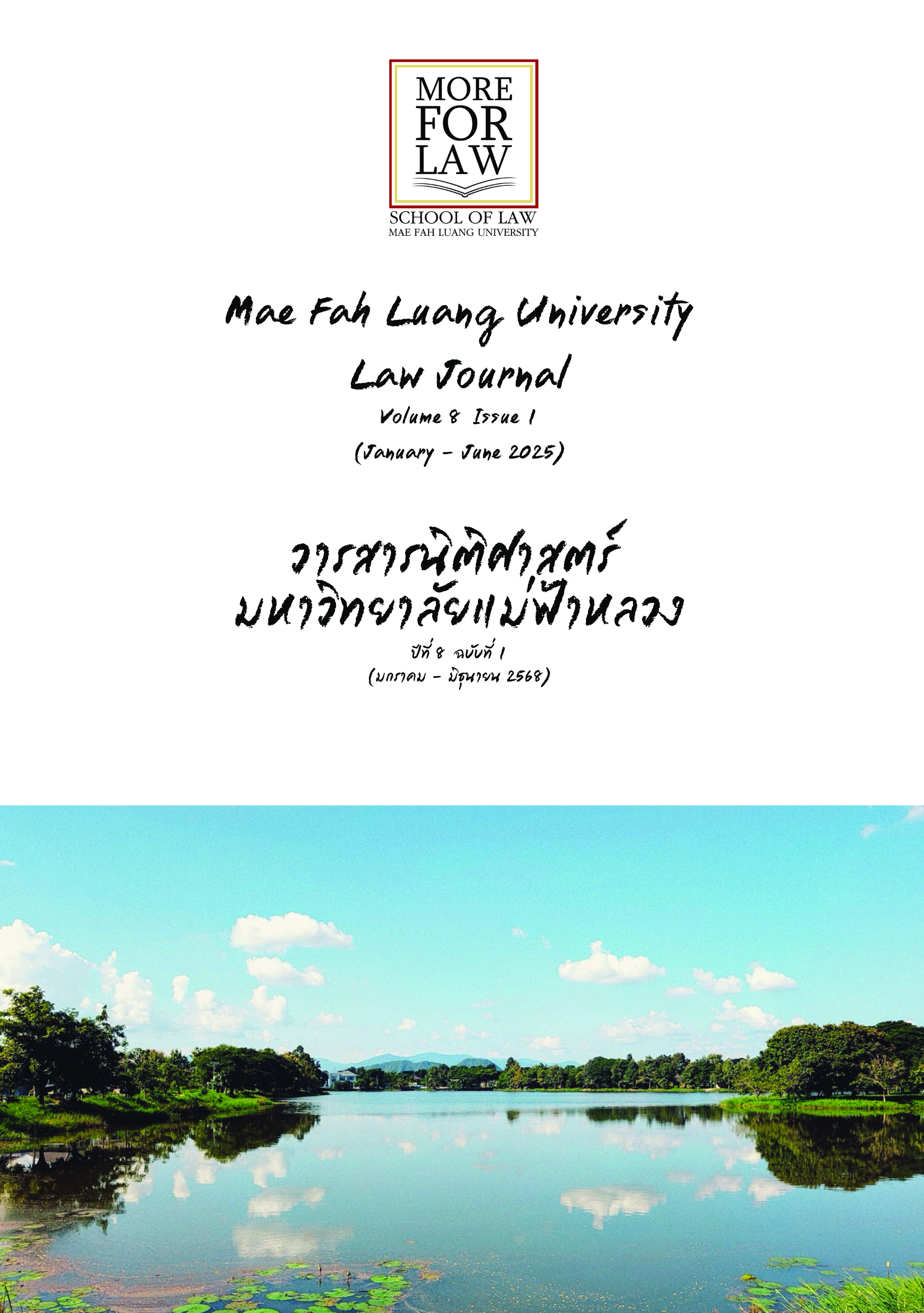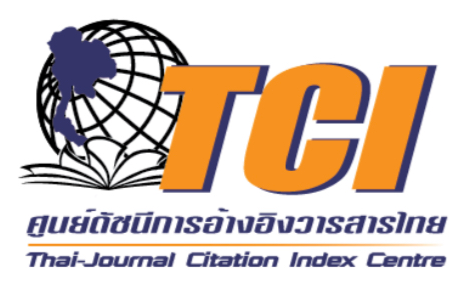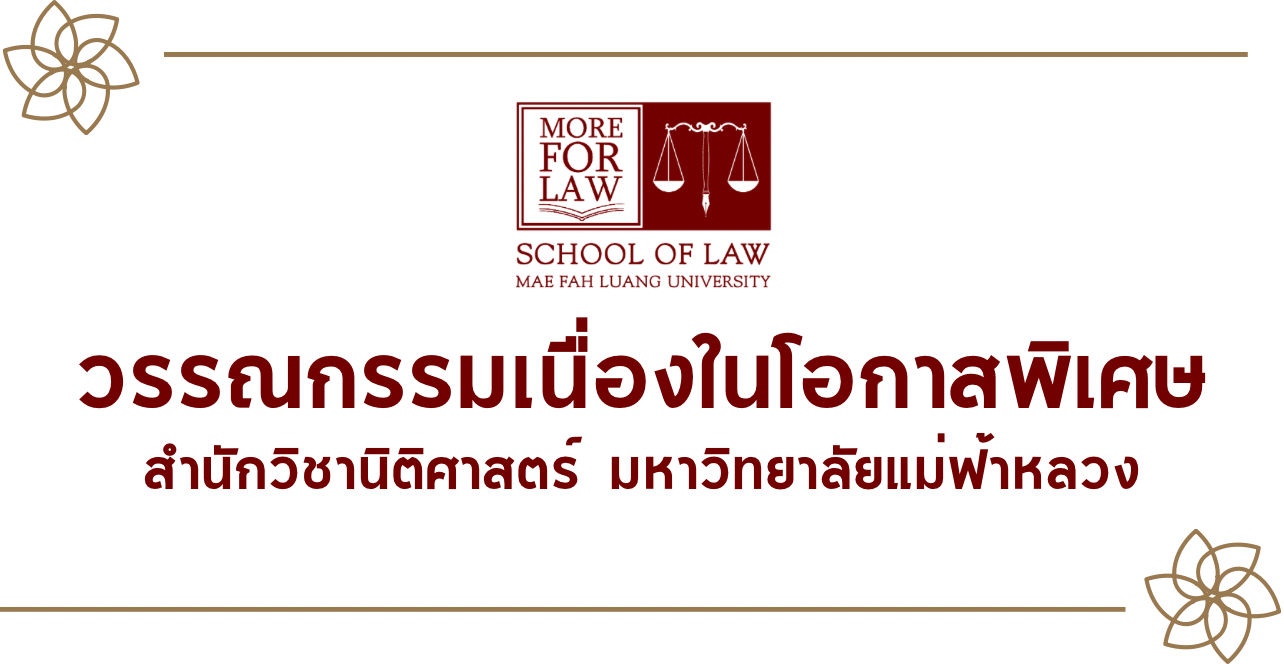Preventive Criminalization: A Case Study on the Appropriateness of Criminal Liability Legislation Regarding “Mule Accounts”
DOI:
https://doi.org/10.14456/mfulj.2025.3Keywords:
Criminal Liability, Harm Prevention, Mule AccountsAbstract
Abstract
This article analyzes the “appropriateness of enacting criminal liability regarding mule accounts” under the concept and principles of “preventive criminalization.” The analysis examines the appropriateness in terms of both content and form. Specifically, in terms of content, it assesses whether it is appropriate for the state to enact provisions concerning mule accounts. In terms of form, it evaluates the appropriateness of the state’s decision to incorporate these provisions into the Emergency Decree on Measures for the Prevention and Suppression of Technological Crimes B.E. 2566 (2023). The analysis concludes that the state’s specific enactment of provisions related to mule accounts is appropriate because (1) mule accounts have the potential to cause future harm, (2) mule accounts are inherently blameworthy, (3) mule accounts pose a threat to public safety, and (4) criminal liability for mule accounts represents a measure of last resort. Additionally, the decision to include provisions on mule accounts in the Emergency Decree on Measures for the Prevention and Suppression of Technological Crimes B.E. 2566 (2023) is deemed appropriate due to the urgent and unavoidable necessity arising from the rapid technological advancements during that period (B.E. 2566). The situation constituted an emergency, requiring immediate legislative action in the form of an “Emergency Decree” to protect national security, public safety, and economic stability.
Downloads
References
เกรียงไกร เจริญธนาวัฒน์, หลักพื้นฐานกฎหมายมหาชน, พิมพ์ครั้งที่ 7 (กรุงเทพมหานคร: สำนักพิมพ์วิญญูชน, 2564).
เกียรติขจร วัจนะสวัสดิ์, คำอธิบายกฎหมายอาญา ภาค 1 เล่ม 1, พิมพ์ครั้งที่ 11 (กรุงเทพมหานคร: โรงพิมพ์กรุงสยาม พับลิชชิ่ง, 2562).
เกียรติขจร วัจนะสวัสดิ์, คำอธิบายกฎหมายอาญา ภาค 1 เล่ม 2, พิมพ์ครั้งที่ 11 (กรุงเทพมหานคร: โรงพิมพ์กรุงสยาม พับลิชชิ่ง, 2562).
ดิศรณ์ ลิขิตวิทยาวุฒิ, ความผิดที่เป็นการเริ่มต้น: ศึกษากรณีการรับอาสากระทำความผิด, วารสารนิติศาสตร์ มหาวิทยาลัยธรรมศาสตร์, ปีที่ 48 ฉบับที่ 4 (ธันวาคม 2562).
ธันยธรณ์ โรจน์มหามงคล, กฎหมายออกกี่โมง?: ชำแหละความล่าช้าในการออกกฎหมายและข้อเสนออัปสปีดสภาไทย [ออนไลน์], แหล่งที่มา: https://www.the101.world/legislative-process-inefficiency/
วิวรรธน์ ดำรงค์กุลนันท์, คำอธิบายกฎหมายอาญา ภาคทั่วไป, พิมพ์ครั้งที่ 2 (กรุงเทพมหานคร: สำนักพิมพ์นิติธรรม, 2563).
วิวรรธน์ ดำรงค์กุลนันท์, โทษจำคุก: แนวคิด ความหมาย ประเภท ทฤษฎี และข้อสังเกตบางประการว่าด้วยการปรับใช้ทฤษฎี ใน หนังสือรพีพัฒนศักดิ์ สำนักวิชานิติศาสตร์ มหาวิทยาลัยแม่ฟ้าหลวง, บรรณาธิการโดย ณัฐดนัย นาจันทร์, (นนทบุรี: โรงพิมพ์ไทภูมิพับลิชชิ่ง, 2567).
วิวรรธน์ ดำรงค์กุลนันท์, มาตรการรอการกำหนดโทษและรอการลงโทษจำคุกเพื่อป้องกันสังคม, (วิทยานิพนธ์ปริญญาเอก หลักสูตรนิติศาสตรดุษฎีบัณฑิต คณะนิติศาสตร์ จุฬาลงกรณ์มหาวิทยาลัย, 2565).
วิวรรธน์ ดำรงค์กุลนันท์, หลักป้องกันสังคมในมาตรการไม่ควบคุมตัว, วารสารรามคำแหง ฉบับนิติศาสตร์ มหาวิทยาลัยรามคำแหง, ปีที่ 11 ฉบับที่ 2 (ธันวาคม 2565).
สมยศ เชื้อไทย, ความรู้กฎหมายทั่วไป, พิมพ์ครั้งที่ 15 (กรุงเทพมหานคร: สำนักพิมพ์วิญญูชน, 2551).
สำนักงานตำรวจแห่งชาติ, คณะทำงานสร้างเสริมภูมิคุ้มกันภัยอาชญากรรมทางเทคโนโลยี สำนักงานตำรวจแห่งชาติ [ออนไลน์], แหล่งที่มา: https://24hicarecenter.com/cybervaccinated
อัจฉรียา ชูตินันทน์, อาชญาวิทยาและทัณฑวิทยา, พิมพ์ครั้งที่ 4 (กรุงเทพมหานคร: สำนักพิมพ์วิญญูชน, 2563).
Andrew Ashworth and Lucia Zedner, Prevention and Criminalization: Justifications and Limits, New Criminal Law Review, Volume 15 Issue 4 (October 2012).
Andrew Ashworth, Principles of Criminal Law, 6th edition (New York: Oxford University Press, 2009).
Andrew Cornford, Preventive Criminalization, [Online], Source: https://online.ucpress.edu/nclr/article/18/1/1/68807/Preventive-Criminalization
Douglas Husak, Why Punish the Deserving? in The Philosophy of Criminal Law: Selected Essays, Edited by Douglas Husak, (Oxford: Oxford University Press, 2010).
Jeroen ten Voorde, Prohibiting Remote Harms: On Endangerment, Citizenship and Control, Utrecht Law Review, Volume 10 Issue 1 (January 2014).
R. A. Duff, Criminalizing Endangerment, Louisiana Law Review, Volume 65 Issue 3 (Spring 2005).
Simon Kemp, Digital 2023: Thailand [Online], Source: https://datareportal.com/reports/digital-2023-thailand
Downloads
Published
How to Cite
Issue
Section
License
Copyright (c) 2025 Mae Fah Luang University Law Journal

This work is licensed under a Creative Commons Attribution-NonCommercial-NoDerivatives 4.0 International License.






